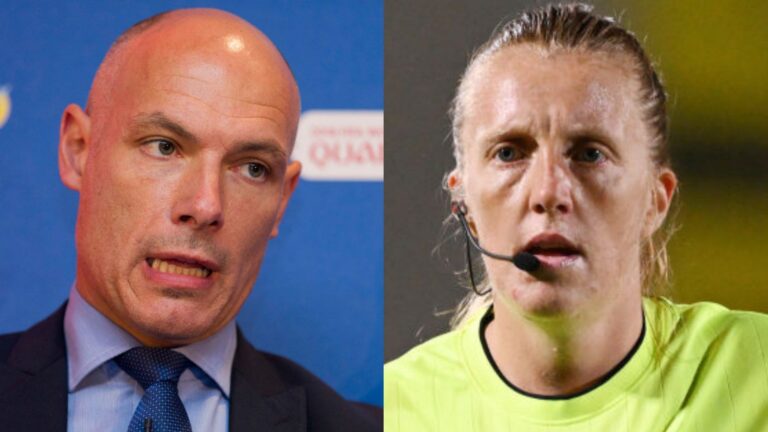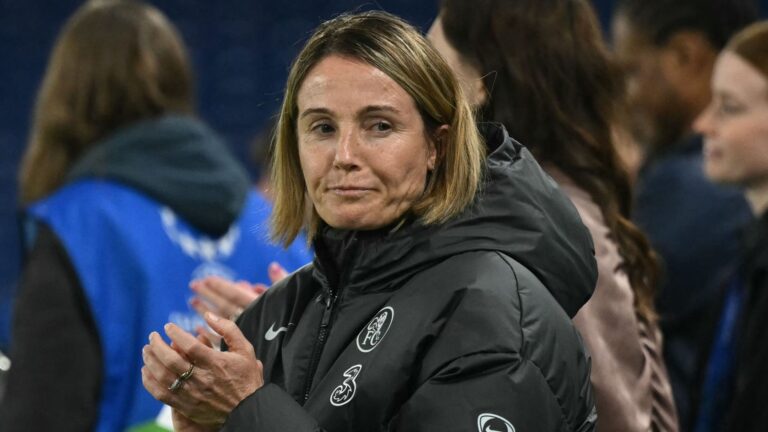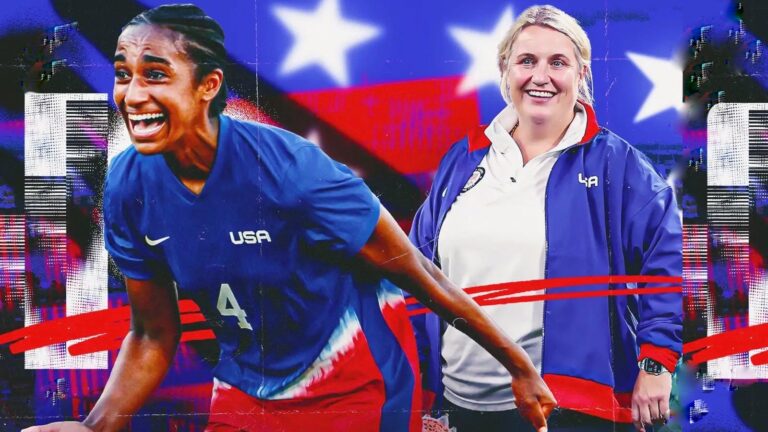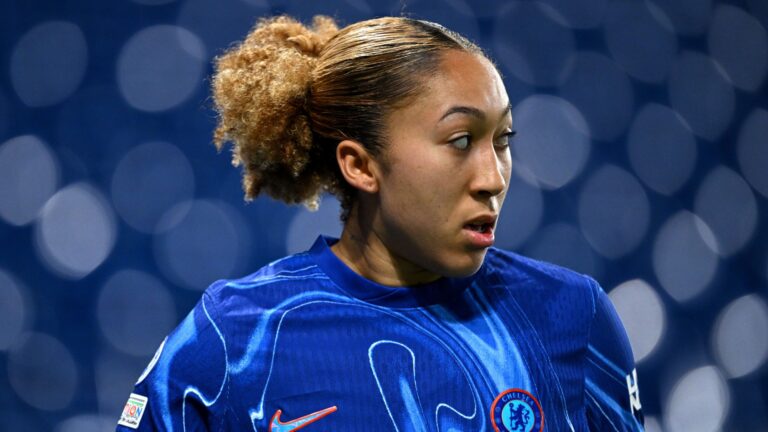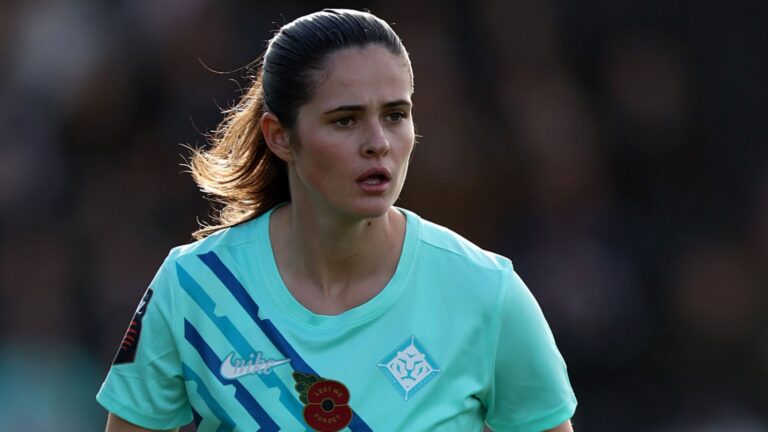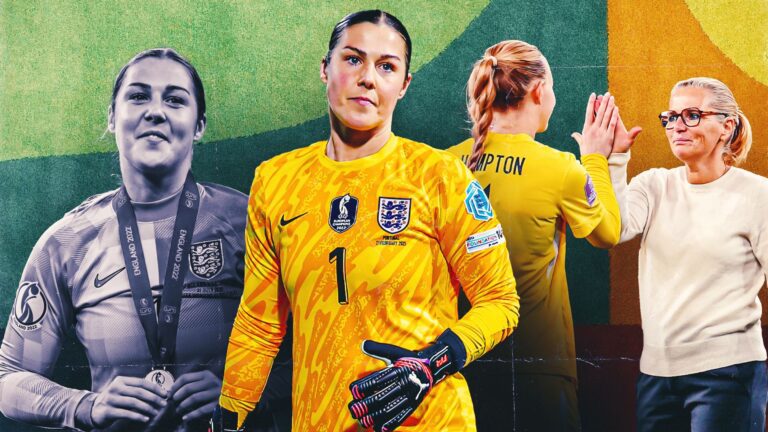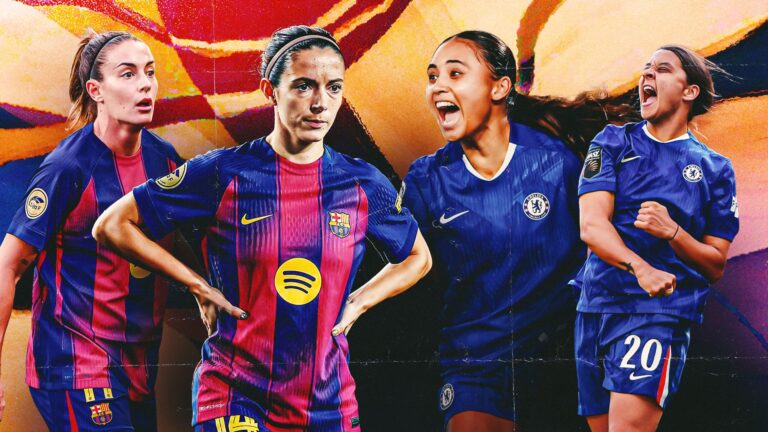Unveiling Mary Fowler’s Fight Against Racism in Women’s Football
In a bold revelation that highlights the pervasive issue of discrimination in sports, Mary Fowler, the Manchester City and Australian national team star, shares her harrowing experiences in her latest memoir. This account exposes the subtle yet damaging racist incidents she faced while playing in France, shedding light on the broader challenges athletes encounter in women’s football.
Mary Fowler’s Personal Story of Discrimination
Within the pages of her book Bloom, Fowler opens up about the unequal treatment she endured during her stint abroad. She details an unsettling episode where she and her teammate Ashleigh Weerden received bananas in place of the customary flowers given to other players at a goodbye event. For Fowler, this moment represented more than an isolated oversight; it was part of a pattern that made her wonder if she was being targeted unfairly. She also recounts similar episodes, such as facing repercussions for simply driving home with her colleague, which fueled doubts about the accidental nature of such biases.
The Deeper Emotional Toll on Fowler
These experiences were exacerbated by instances like a team medical staff member’s dismissal of her genuine health concerns regarding severe chest discomfort. Such events played a significant role in Fowler’s battle with mental health issues, including feelings of despair, acts of self-injury, and thoughts of exiting the sport entirely. Her story emerges amid a growing wave of discussions about racial inequality in female athletics, as more athletes come forward with their own tales of adversity.
Fowler’s Reflections on the Incident
In her own words, Fowler recalled: “Upon entering the locker area, several teammates asked why we hadn’t gotten flowers. A couple of them chuckled, and then another player approached, offering my friend and me bananas with the words, ‘here, take these.’ I’ve pondered whether it was unintentional, the sole item available, or perhaps meant kindly… Yet, considering the repeated instances that left us uneasy at the club, it’s tough to dismiss it as just a minor slip.”
At the time, Fowler chose not to confront the situation, explaining: “We simply remained there, clutching those bananas, feeling powerless to respond.”
Mary Fowler’s Rise and Achievements at Manchester City
Despite the challenges, Fowler has shone brightly since joining Manchester City in 2022, establishing herself as a key emerging figure in the sport. Brought on board for her exceptional potential, she has featured in 86 matches, contributing 21 goals and 22 assists. Her previous season stood out as a pinnacle, with impressive double-figure tallies in both goals and assists, securing her a place in the PFA WSL Team of the Year. Unfortunately, an ACL injury cut her campaign short in April, yet she has committed to the team through a contract extension running until 2027 as she rehabilitates.
Her Thoughts on the Extended Deal
Regarding her renewed agreement with the club, Fowler expressed: “This is truly thrilling. Manchester City has become a second home for me over time, and extending this path with them fills me with pride. Thriving in my game relies heavily on enjoyment, and the club has built a setting where I can truly excel. I’m passionate about collaborating with my teammates here.”
Club Leadership’s Perspective
Manchester City’s Director of Football Therese Sjogran commented: “Mary plays a vital role for us both during games and beyond, so we’re thrilled she’s chosen to prolong her tenure. She’s an outstanding player, and her yearly progress since arriving reflects her dedication and effort outside of matches. We’re eager about the prospects ahead for the squad, and Mary will be essential once she’s fully recovered.”
Who is Mary Fowler?
Mary Fowler is a prominent figure in women’s football, known for her exceptional skills as a forward for Manchester City in the Women’s Super League (WSL). Born in Cairns, Australia, in 2003, Fowler has quickly risen through the ranks, representing the Australian national team, the Matildas, and gaining international recognition for her speed, agility, and goal-scoring prowess. Her journey from youth leagues in Australia to professional stardom highlights the growing popularity of women’s football and the importance of diverse talents in the sport.
Fowler’s career trajectory includes stints with clubs like Montpellier in France, where she honed her abilities before moving to Manchester City. This transition has not only boosted her profile but also exposed her to high-stakes environments, making her a key player in discussions about racism in sports. Fans and analysts often praise her for her contributions to Manchester City’s attacking strategies, which have helped the team compete at the highest levels of women’s football.
- Key Achievements of Mary Fowler:
- Debuted for the Australian national team at just 15 years old.
- Played a pivotal role in Montpellier’s campaigns in French leagues.
- Scored multiple goals in WSL matches for Manchester City, drawing attention from global audiences.
The Alleged Racist Prank Involving Bananas
In a shocking incident that sparked widespread outrage, Mary Fowler alleged a racist prank involving bananas after a final match for Montpellier. This event reportedly occurred following a high-tension game, where Fowler, as a player of Pacific Island heritage, became the target of what she described as a deliberate act of racial harassment. The prank, which involved bananas being thrown or placed in her vicinity, is a notorious symbol of racism in sports, often evoking historical stereotypes and dehumanization of players of color.
According to reports, the incident took place in the aftermath of a emotionally charged final, potentially amplifying existing rivalries. Fowler’s allegations brought to light the underbelly of sports culture, where racist pranks can undermine the integrity of the game and affect players’ mental health. This case underscores the need for stricter protocols in football to address such behaviors, including immediate investigations and player support systems.
- Details of the Incident:
- Timing and Context: The prank allegedly happened right after the final match, a period when emotions run high and security might be lax.
- Fowler’s Response: She publicly shared her experience, emphasizing how it made her feel targeted and unsafe, which resonated with many athletes facing similar issues.
- Common Themes in Racist Pranks: Bananas have been used in past incidents across sports like football and tennis, often representing derogatory comparisons to monkeys, highlighting a persistent problem in global athletics.
Impact of Racism in Football on Players Like Mary Fowler
Racism in football, as exemplified by Fowler’s allegations, has far-reaching effects on players’ careers and personal lives. For athletes like Fowler, who are at the forefront of women’s football, such incidents can lead to psychological stress, reduced performance, and even early exits from the sport. This event with Manchester City star Mary Fowler has fueled conversations about creating safer environments in leagues worldwide, including the WSL and international tournaments.
Football governing bodies, such as FIFA and the FA, have policies in place to combat racism, but Fowler’s case shows that enforcement needs improvement. Players often report feeling isolated after such events, which can impact team dynamics and overall morale at clubs like Manchester City.
- Broader Implications for Women’s Football:
- Mental Health Challenges: Racist pranks can cause anxiety and trauma, prompting calls for mandatory counseling for affected players.
- League Responses: Many teams, including Manchester City, have implemented anti-racism training, but incidents like this highlight gaps in effectiveness.
- Fan Education Initiatives: Campaigns to educate supporters on the harms of racist behavior are gaining traction, with social media playing a key role in raising awareness.
How Sports Organizations Are Addressing Racist Pranks
In the wake of Mary Fowler’s allegations regarding the banana prank after her final match for Montpellier, sports organizations have ramped up efforts to tackle racism head-on. Initiatives include enhanced stadium security, anonymous reporting systems, and partnerships with anti-discrimination groups. For instance, the WSL has introduced stricter penalties for racist acts, aiming to deter future occurrences and protect stars like Fowler.
- Key Strategies Being Adopted:
- H3: Immediate Investigations: Upon reports like Fowler’s, clubs must conduct thorough inquiries, often involving video footage and witness statements to ensure accountability.
- H4: Role of Technology: AI-driven monitoring of crowd behavior during matches can help identify and prevent racist pranks in real time.
- H3: Educational Programs: Manchester City and similar clubs are rolling out workshops for players, staff, and fans, focusing on cultural sensitivity and the history of racism in sports.
- H4: Community Outreach: Collaborations with local organizations help address root causes, promoting inclusivity in football communities.
- H3: Support for Victims: Players alleging racism, such as Fowler, now have access to specialized support networks, including legal aid and mental health resources, to navigate the aftermath.
This proactive approach not only safeguards talents in women’s football but also enhances the sport’s reputation, making it more appealing to diverse audiences. As racism in football continues to be a hot topic, cases like Mary Fowler’s serve as catalysts for positive change, ensuring that the game remains a platform for unity rather than division.
The Role of Media and Public Discourse in Racist Incidents
Media coverage of Mary Fowler’s allegations has played a crucial role in shaping public discourse around racist pranks in football. Outlets have highlighted how such incidents affect players’ experiences in high-profile settings, like post-match celebrations for Manchester City or Montpellier games. This increased visibility helps in holding perpetrators accountable and encourages a more empathetic fan base.
- H3: Social Media’s Double-Edged Sword:
- Platforms amplify stories like Fowler’s, allowing her to share her side directly, but they also spread misinformation, making fact-checking essential.
- H4: Positive Outcomes: Viral discussions have led to petitions and campaigns demanding zero-tolerance policies in the WSL.
In summary of evolving strategies, ongoing dialogue ensures that football remains a space where players like Mary Fowler can thrive without fear, fostering a more inclusive environment for future generations.



